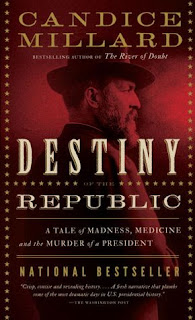Douglas Smith
Douglas Smith's new book is Former People: The Final Days of the Russian Aristocracy.
From a Q & A at the author's website:
How did you first get interested in this story?Visit Douglas Smith's website.
It was back in 2005 when I was writing a book on the scandalous love affair between Count Nicholas Sheremetev and his serf Praskovya Kovalyova, the famous opera singer who performed as “The Pearl.” I got to know some of the descendants of the count, now living in the United States, and became fascinated by their stories of what had happened to thefamily after the revolution. Their tales of loss and emigration, of desperate escapes from the Bolsheviks and the destruction of their ancestors’ way of life captured my imagination. I started reading everything I could find on the subject, but nothing seemed to satisfy my curiosity. It wasn’t long before I knew I had to write this book.
Why do you think no one had ever written such a book before?
I think there are a few reasons. For most of the past century the subject was taboo in the Soviet Union. It simply didn’t exist as a topic. The nobles themselves had been too traumatized to discuss these things publicly and the Soviet historical profession had no interest in even mentioning the subject. It was only with the reforms begun under Gorbachev in the 1980s that Russians began to uncover this repressed past. I was fortunate to come to this subject at just the right moment after a great deal of material had finally been published, the archives had been opened, and noble families were keen to talk about their experiences.
How did you do the research for the book?
Former People draws on...[read on]
The Page 69 Test: Douglas Smith's The Pearl.
--Marshal Zeringue





























